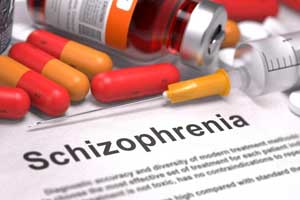- Home
- Editorial
- News
- Practice Guidelines
- Anesthesiology Guidelines
- Cancer Guidelines
- Cardiac Sciences Guidelines
- Critical Care Guidelines
- Dentistry Guidelines
- Dermatology Guidelines
- Diabetes and Endo Guidelines
- Diagnostics Guidelines
- ENT Guidelines
- Featured Practice Guidelines
- Gastroenterology Guidelines
- Geriatrics Guidelines
- Medicine Guidelines
- Nephrology Guidelines
- Neurosciences Guidelines
- Obs and Gynae Guidelines
- Ophthalmology Guidelines
- Orthopaedics Guidelines
- Paediatrics Guidelines
- Psychiatry Guidelines
- Pulmonology Guidelines
- Radiology Guidelines
- Surgery Guidelines
- Urology Guidelines
Guideline for Antipsychotic use in schizophrenia detailed by Lancet study

Delhi: The antipsychotics used for schizophrenia treatment have relatively small efficacy differences between them, but the differences in side-effects are more marked, according to a recent review.Findings of the study, published in The Lancet, will help clinicians in balancing risks and benefits of the drugs available in their countries and make an informed decision. The importance of each outcome, the patients' medical problems, and preferences should be considered by them.
The researchers found that with few exceptions, only clozapine, amisulpride, zotepine, olanzapine, and risperidone were significantly more effective for reducing symptoms. Older antipsychotics were more frequently associated with extrapyramidal motor side effects (EPS) and elevations in prolactin levels. Many newer antipsychotics were associated with more weight gain and sedation.
Schizophrenia is a chronic and psychiatric disorder that affects the person's ability to think, feel and behave clearly. It is one of the most common, burdensome, and costly psychiatric disorders in adults worldwide. The treatment of choice is antipsychotic drugs, but there has been controversy on the selection of the right antipsychotic agent.
Maximilian Huhn, Technical University of Munich, Munich, Germany, and colleagues aimed to compare and rank antipsychotics by quantifying information from randomised controlled trials.
The meta-analysis compared 32 older and newer oral antipsychotics either to each other or with the placebo. The researchers included randomized controlled trials in adults with acute symptoms of schizophrenia or related disorders. Studies in patients with treatment resistance, first episode, predominant negative or depressive symptoms, concomitant medical illnesses, and relapse-prevention studies were excluded.
Overall, of 54,417 studies, the researchers included 402 RCTs (n = 53,463 participants; mean [SD] age, 37.40 [5.96] years; 56.02% male; mean duration of illness, 11.9 [5.19] years).
The primary outcome was a change in overall symptoms measured with standardised rating scales.
Key findings of the study include:
- Effect size estimates suggested all antipsychotics reduced overall symptoms more than placebo (although not statistically significant for six drugs), with standardised mean differences ranging from −0·89 (95% CrI −1·08 to −0·71) for clozapine to −0·03 (−0·59 to 0·52) for levomepromazine (40 815 participants).
- Standardised mean differences compared with placebo for reduction of positive symptoms (31 179 participants) varied from −0·69 (95% CrI −0·86 to −0·52) for amisulpride to −0·17 (−0·31 to −0·04) for brexpiprazole, for negative symptoms (32 015 participants) from −0·62 (−0·84 to −0·39; clozapine) to −0·10 (−0·45 to 0·25; flupentixol), for depressive symptoms (19 683 participants) from −0·90 (−1·36 to −0·44; sulpiride) to 0·04 (−0·39 to 0·47; flupentixol).
- Risk ratios compared with placebo for all-cause discontinuation (42 672 participants) ranged from 0·52 (0·12 to 0·95; clopenthixol) to 1·15 (0·36 to 1·47; pimozide), for sedation (30 770 participants) from 0·92 (0·17 to 2·03; pimozide) to 10·20 (4·72 to 29·41; zuclopenthixol), for use of antiparkinson medication (24 911 participants) from 0·46 (0·19 to 0·88; clozapine) to 6·14 (4·81 to 6·55; pimozide).
- Mean differences compared to placebo for weight gain (28 317 participants) ranged from −0·16 kg (−0·73 to 0·40; ziprasidone) to 3·21 kg (2·10 to 4·31; zotepine), for prolactin elevation (21 569 participants) from −77·05 ng/mL (−120·23 to −33·54; clozapine) to 48·51 ng/mL (43·52 to 53·51; paliperidone) and for QTc prolongation (15 467 participants) from −2·21 ms (−4·54 to 0·15; lurasidone) to 23·90 ms (20·56 to 27·33; sertindole).
- Conclusions for the primary outcome did not substantially change after adjusting for possible effect moderators or in sensitivity analyses (eg, when excluding placebo-controlled studies). The confidence in evidence was often low or very low.
Individualized Treatment
When compared to placebo, clopenthixol was associated with the lowest discontinuation rates and haloperidol with the highest.
- Twelve antipsychotics, with zotepine, olanzapine, and sertindole topping the list, were associated with the most weight gain, compared to placebo (n = 116 studies; 28,317 participants).
- Clozapine was associated with less risk for use of antiparkinson medications, compared with haloperidol; the highest risk was found with chlorpromazine (n = 136 studies; 24,911 participants). There was a similar hierarchy for akathisia (n = 116 studies, 25,783 patients).
- The drugs most implicated in elevations in prolactin level were olanzapine, asenapine, lurasidone, sertindole, haloperidol, amisulpride, risperidone, and paliperidone (n = 90 studies; 21,569 patients).
- Quetiapine was least implicated in causing QTc prolongation, followed by olanzapine and risperidone (n = 51 studies; 15,467 participants).
- Of 32 antipsychotics examined in 162 studies (n = 30,770 participants), all were associated with some degree of sedation, but 18 were associated with significantly more sedation than placebo, with RRs ranging from 1.33 (95% CrI, 1.00 – 1.68) for paliperidone to 10.20 (95% CrI, 4.72 – 29.41) for zuclopenthixol.
- Risk for side effects related to anticholinergics (which are often used to treat EPS) was most prominent with risperidone and haloperidol (n = 134 studies; 26,904 participants).
The authors caution clinicians to "remember that reported results are averages and that response and side effects might vary considerably in individual patients."
To read the complete study log on to https://doi.org/10.1016/S0140-6736(19)31135-3

Disclaimer: This site is primarily intended for healthcare professionals. Any content/information on this website does not replace the advice of medical and/or health professionals and should not be construed as medical/diagnostic advice/endorsement or prescription. Use of this site is subject to our terms of use, privacy policy, advertisement policy. © 2020 Minerva Medical Treatment Pvt Ltd